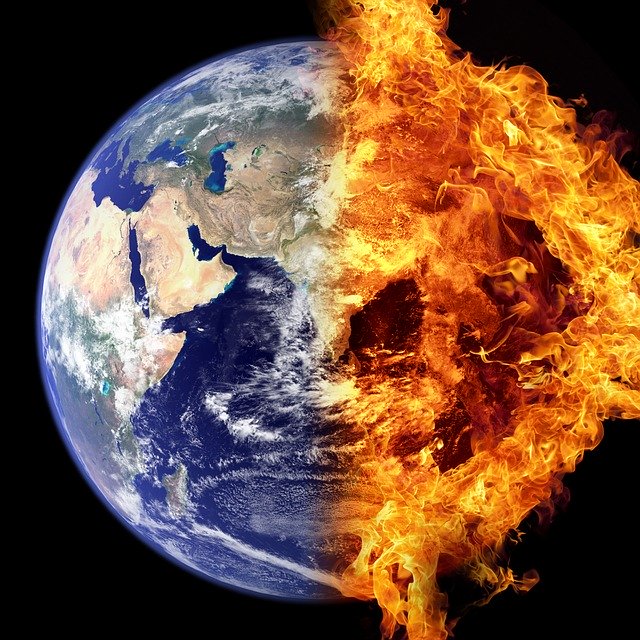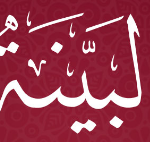The Quran given to Prophet Muhammad (SAW) is the last holy book and follows the previous divine scriptures such as the Gospels (Jesus), Old Testament (Moses) and Psalms (David). Muslims believe that the Torah came first, and then the Psalms, followed by the Gospels, and all of these were holy books before the Quran was revealed.
But what does the Quran itself say about this subject? We shall take a look here.
Hadith about the past scriptures
When the Prophet (SAW) was asked: what is Imaan (faith), He said: To believe in Allah, His Angels, His Books, His Messengers and the last day, and to believe in destiny….’ To believe in this, means to acknowledge and accept all the books, the messages and revelations that Allah sent down to His Messengers throughout the whole of history, those that are known about – 5 or 6 – and those that we don’t know about.

How many Holy Books are there in Islam?
Four main books have been clearly stated in the Quran ie. The Torah given to Musa (Moses AS), the Injeel given to Isa (Jesus AS), the Zabur given to Dawud (David AS). There are also scriptures not given a name but mentioned such as the Scriptures of Abraham.
The Quran is the final installment if you will in that line of Holy Scriptures. All divinely revealed Books are considered to be true and correct when originally sent, but over time almost all of them have been changed by people.
So what happened to the previous Scriptures?
The question arises that if these were all divinely revealed books and were true in the content and guidance to those they were sent to, why were they superseded by another one and then eventually by the Quran? One aspect is that the previous nations were asked to not only follow their Book, but also to protect it.
Time and time again, the trust placed on those to who these Books were given, betrayed this trust and the books were corrupted and changed. They were edited and added to in some parts, in other places, parts were removed which changed the meaning and the context to something completely different than the original. This was done by a few individuals in their respective societies due to selfish interests and then these changes being accepted and approved by the society at large.
‘And indeed, there is among them a party who alter the Scripture with their tongues so you may think it is from the Scripture, but it is not from the Scripture. And they say, “This is from Allah,” but it is not from Allah. And they speak untruth about Allah while they know.’
Quran [3:78]
The Quran is the Final Revelation
The Quran, being the final revelation confirms as true some of the texts mentioned in the previous scriptures while in others, it denies what is in them and for the rest, it does not mention people or events and so does not confirm nor deny their truthfulness.
‘And We have revealed to you, (O Muhammad), the Book in truth, confirming that which preceded it of the Scripture and as a criterion over it. So judge between them by what Allah has revealed and do not follow their inclinations away from what has come to you of the truth. To each of you We prescribed a law and a method…..‘
Quran [5:48]
In relation to the earlier Books, the Quran came to reveal parts of religion which until that time had not yet been revealed. And also, it clarified matters which previous nations were disputing over and/or had forgotten. The Quran decided these differences and revealed the true nature of such matters.
Allah kept sending reminders
Due to Allah’s mercy, He kept sending another scripture to clarify to the people who had drifted away from the true guidance, so they weren’t left in darkness. When one divinely revealed Book was corrupted another was sent until eventually, Allah sent the Quran.
The difference between this and the previous Books was that Allah chose to protect it Himself rather than entrusting it to His slaves. This is why the Quran remains unchanged to this day word for word and it has been preserved from corruption.

What do Muslims believe about the previous holy books?
The main belief regarding the previous books falls into three categories:
1. That text which has been confirmed by our Revelation has been preserved. If something occurs in a previous scripture and is also contained in the Quran then Muslims believe this part of the scripture is true.
2. Those parts of the scriptures which have been denied by our Revelation. If something is contrary to the Quran then it is an obligation to deny that part of the previous scripture, because the Quran is the verifying criteria. For example, the Bible says that Jesus is God or the Son of God but the Quran denies this and says he was no more than an exalted Messenger. So it is necessary to say that part of the Bible is incorrect.
3. Those parts that were neither confirmed nor denied by our Revelation. For example, if something occurs in a previous scripture like the name of Joseph’s (AS) brother is mentioned as Benjamin, but in the Quran it says only that Yusuf (Joseph AS) spoke to his brother, the name is not mentioned. So in these cases, Muslims neither deny nor confirm this information, but it is ok to mention it, but rulings cannot be given based on these.
Pay attention to the Quran; reading it and pondering over it will bring one closer to the Creator. Allah cares for His slaves. He has revealed to each people a Book by which they may be guided.
‘O People of the Scripture, there has come to you Our Messenger making clear to you much of what you used to conceal of the Scripture and overlooking much. There has come to you from Allah a light and a clear Book.’
Quran [5:15]




